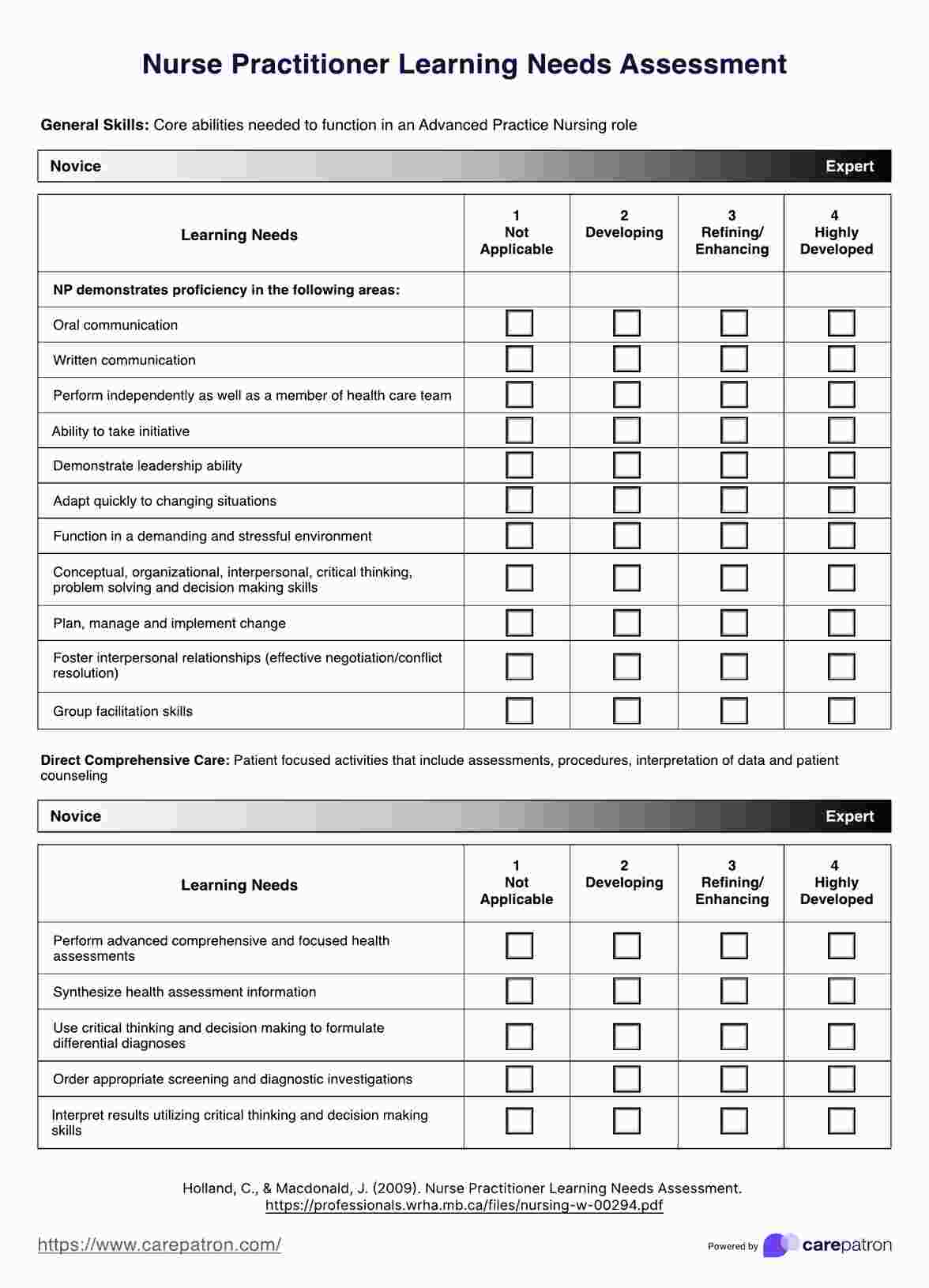The primary goal is to identify and address the specific learning needs of nurses to enhance their competencies, improve patient care and outcomes, and support professional development.

Learning Needs Assessment Nursing
Unleash your full potential! Master nursing skills & knowledge with Carepatron's LNA guide. Boost patient care & career growth.
Use Template
Learning Needs Assessment Nursing Template
Commonly asked questions
It should be conducted annually or whenever there is a significant event or change in practice, healthcare standards, or the nurse's role or responsibilities.
Yes, it can identify areas for growth and development, guiding nurses toward advanced roles, specializations, and leadership opportunities within the healthcare system.
EHR and practice management software
Get started for free
*No credit card required
Free
$0/usd
Unlimited clients
Telehealth
1GB of storage
Client portal text
Automated billing and online payments











